Turkey pro-Kurd HDP party condemns arrest of leaders
- Published
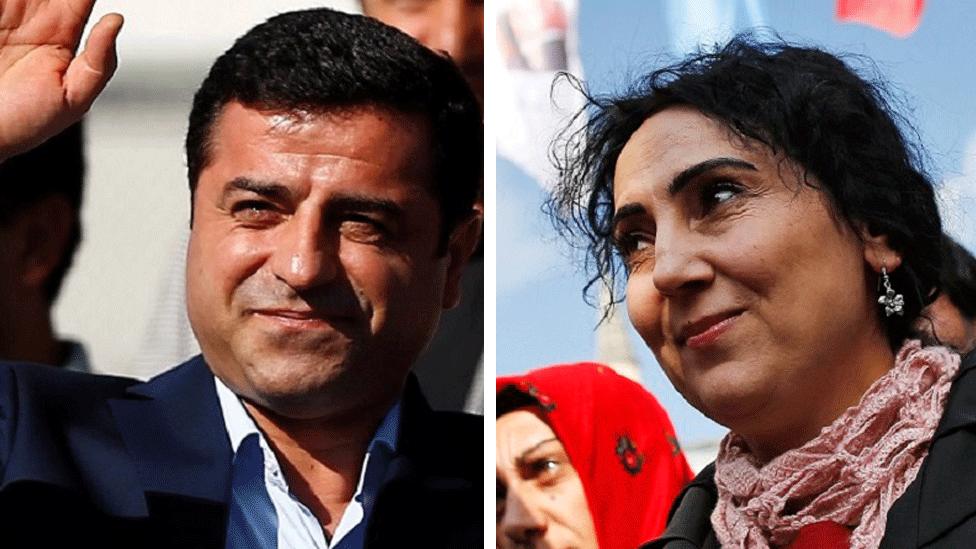
Selahattin Demirtas (L) and Figen Yuksekdag have been detained as well as other MPs from their party
The pro-Kurdish HDP party in Turkey has denounced the arrest of its leaders on Thursday night as an attempt by the government to eradicate democracy.
The HDP said the arrests were a dark day for the country, as its supporters took to the streets in protest.
HDP joint leaders Selahattin Demirtas and Figen Yuksekdag are accused of spreading propaganda for militants fighting the Turkish state.
They and 10 other HDP MPs deny links to the PKK Kurdish rebel group.
All were arrested for refusing to answer prosecutors' questions.
Mr Demirtas has won international support with his liberal politics, but critics say he has failed to distance the party sufficiently from the PKK.
Hours after the arrest, a huge car bomb killed eight people and wounded more than 100 in the south-eastern city of Diyarbakir.
Turkish authorities blamed the outlawed PKK (Kurdistan Workers' Party), but the group known as Islamic State later claimed the attack through its Amaq news agency.
State of emergency
Riot police on Friday clashed with demonstrators in Ankara, Istanbul and other cities over the detentions, Hurriyet Daily News , externalreported.
HDP lawmaker Adem Geveri told the Associated Press news agency that the government wanted to create "an authoritarian Turkey" devoid of democratic opposition.
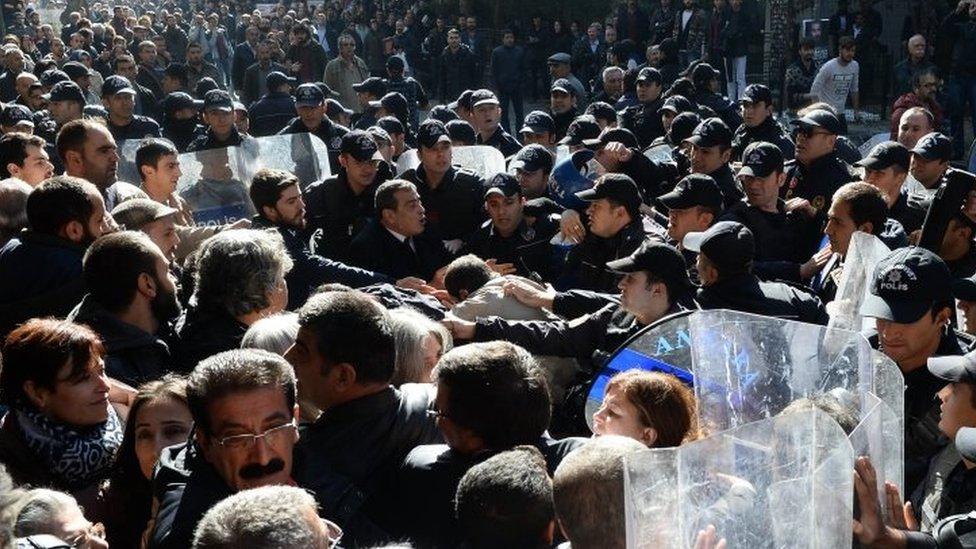
Police broke up HDP protests in Ankara and other cities on Friday
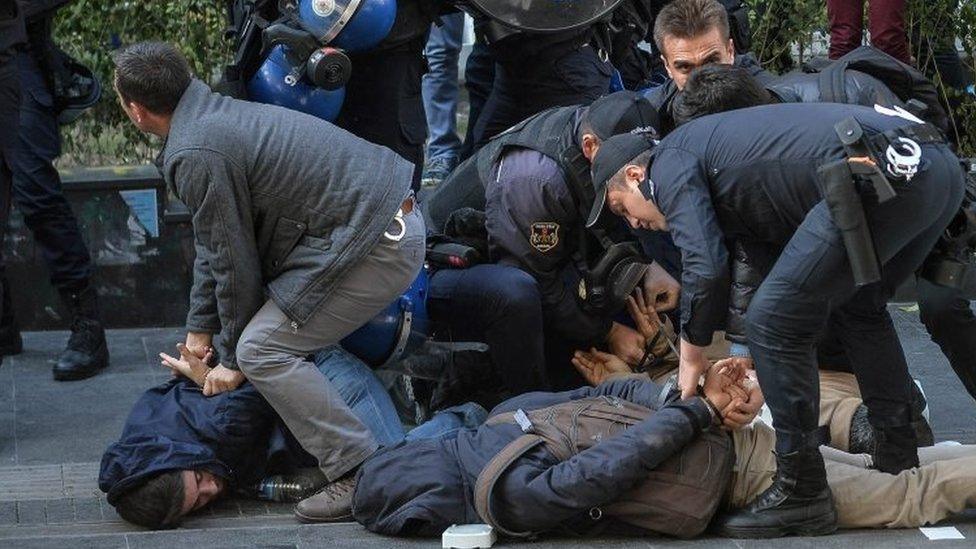
Several HDP supporters were arrested in Ankara
The arrests have been condemned by Germany and the EU.
Militants have been fighting for years to achieve independence for the Kurds, Turkey's biggest ethnic minority.
Turkey remains under a state of emergency that was imposed after a failed military coup in July.
The emergency allows President Recep Tayyip Erdogan and his cabinet to bypass parliament when drafting new laws and to restrict or suspend rights and freedoms.
The BBC's Mark Lowen in Turkey says that the arrests represent a major escalation of a clampdown that has seen Kurdish media closed down and the mayor of Diyarbakir arrested.
Our correspondent says they are likely to provoke more tension among Kurds - and more violence too.
Hopes of an end to Turkey's decades-long Kurdish problem have evaporated since a ceasefire with the PKK broke down in 2015, leading to a wave of tit-for-tat attacks.
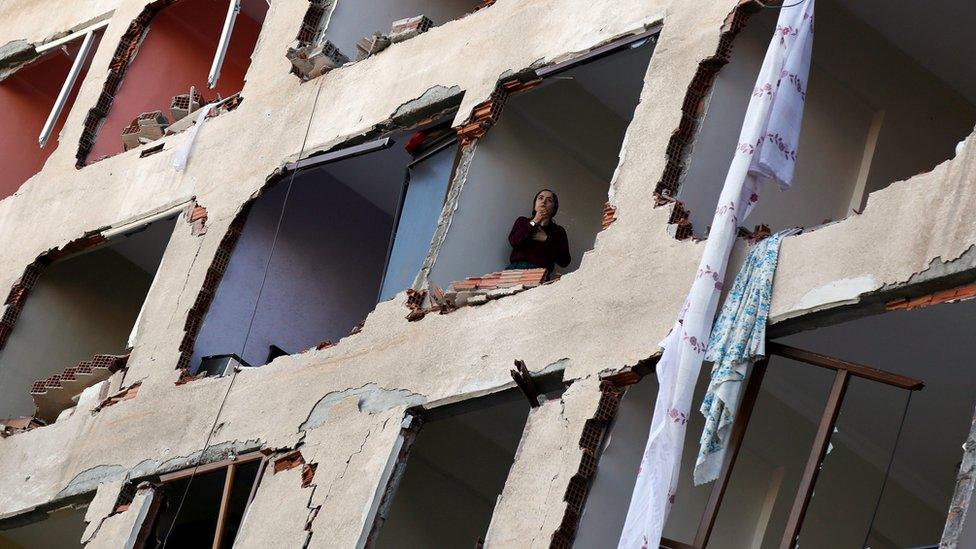
The blast in Diyarbakir destroyed the fronts of buildings

Why were the party leaders arrested?
The government says they were detained for failing to co-operate with a counter-terrorism investigation, which the two leaders vowed to boycott in June.
Defending the arrests, Justice Minister Bekir Bozdag said: "They did not respect the law."
The MPs are also accused of spreading propaganda for the PKK.
Deemed a terrorist organisation by the US, the EU and Turkey, the PKK has been fighting the state since the 1970s in a war which has claimed at least 40,000 lives.
How big was Friday's bomb attack?
The blast in Diyarbakir ripped the facades off multi-storey buildings and firefighters searched rubble afterwards for people trapped.
A police building is thought to have been the intended target. Two police officers are among the dead.
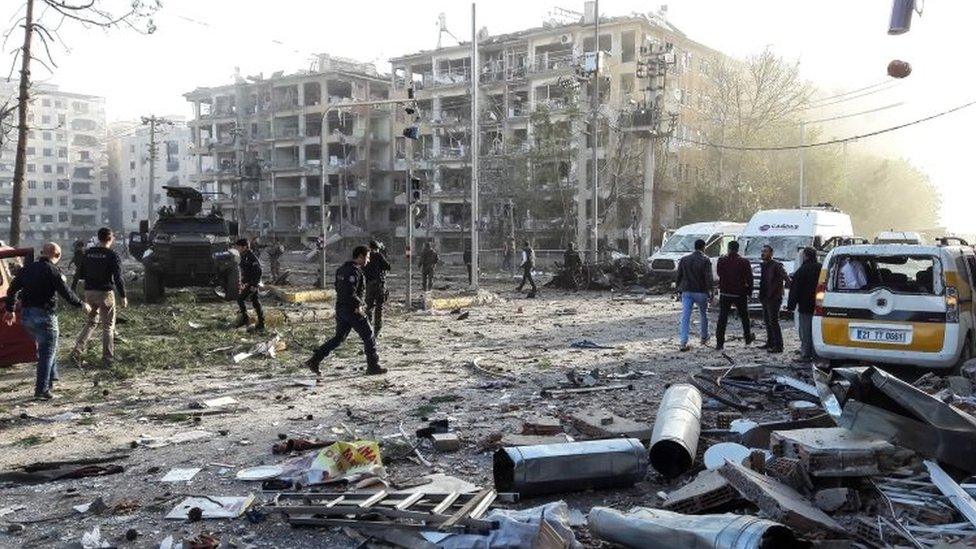
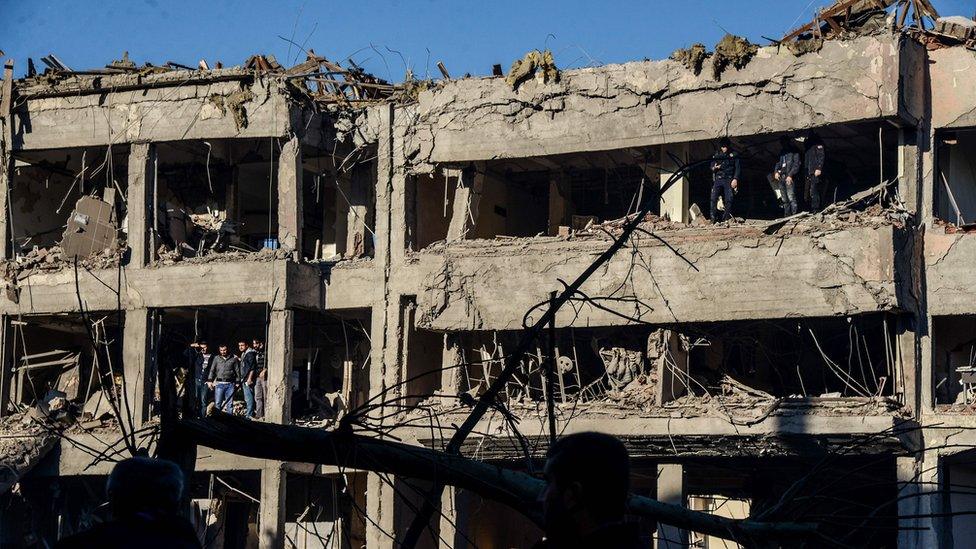
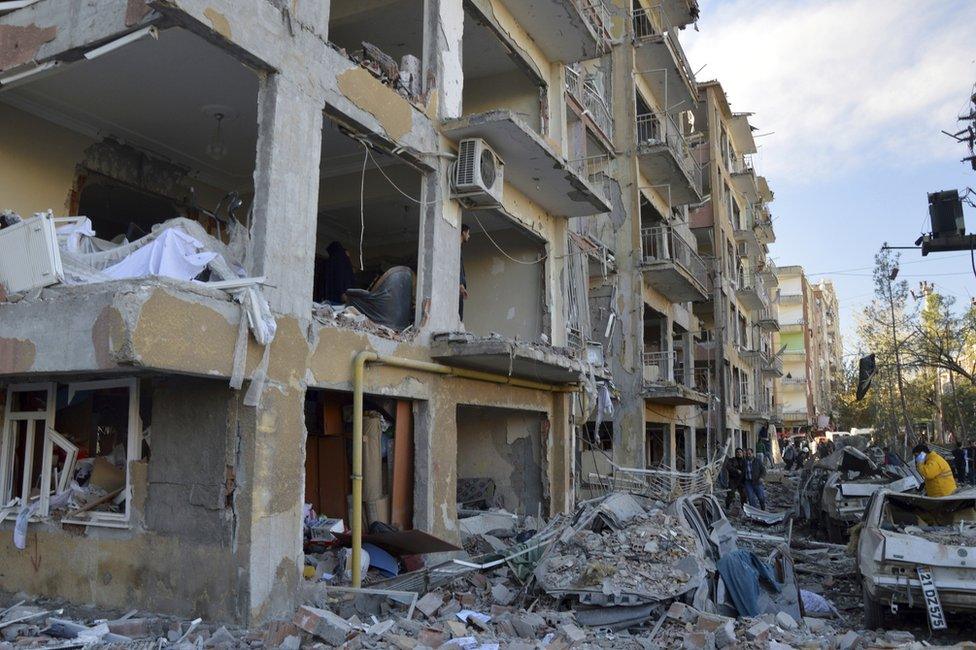
Is it legal for MPs to be arrested in Turkey?
Turkish politicians normally have immunity from prosecution but this was removed from the HDP - the third largest party in the country - and some other MPs in May.
Last month, the joint mayors of Diyarbakir, Turkey's largest Kurdish-majority city, were also arrested as part of a terrorism investigation.
Is the HDP linked to the PKK?
While commonly seen as the main pro-Kurdish party, HDP is an eclectic grouping which also appeals to leftists, liberals, environmentalists, gay rights activists and pious Muslims. That explains why it is Turkey's third-largest party.
It entered parliament for the first time last year, winning 59 seats.
During the election campaign, it carried a moderate message despite dozens of attacks against party supporters and offices, culminating in a deadly attack on its largest election rally in Diyarbakir two days before the vote.
The party strongly denies any links to the PKK.